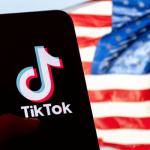The debate over TikTok’s future in the United States has sparked heated discussions about national security, free speech, and the power of technology in society.
While concerns about data privacy and TikTok’s ties to China are legitimate, an outright ban is not the solution... Continue reading here ▶
Instead, the government should focus on creating clear regulations that protect users’ data and national interests without sacrificing freedom of expression or innovation.
The Case Against a Ban
Banning TikTok would set a troubling precedent for how governments handle digital platforms. TikTok is not just a social media app; for millions of users, it’s a tool for creativity, business, and community.
Shutting it down would disrupt countless livelihoods, particularly for content creators and small businesses that rely on the platform for income and visibility.
Moreover, a ban would open the door for broader censorship. If TikTok can be banned today, what stops other platforms from facing similar fates based on vague or politically motivated concerns? Such actions could lead to a fragmented internet, where governments wield unchecked power to control online spaces.
The National Security Concern
The primary argument for banning TikTok revolves around national security. Critics point to the app’s extensive data collection practices and its potential susceptibility to influence from the Chinese government due to its parent company, ByteDance. These concerns are valid, especially in an era where data is a powerful tool for surveillance and manipulation.
However, these issues are not unique to TikTok. Many platforms collect vast amounts of user data, and the risks of misuse exist across the tech industry. Targeting one app without addressing the broader issues of data privacy and security is an incomplete solution.
A Better Solution: Regulation
Rather than banning TikTok, the government should focus on regulating the app and similar platforms. Comprehensive regulations can address data privacy concerns while preserving access to the platform. Here’s how this can be done:
- Data Localization: Require TikTok to store all US user data on servers located in the United States, subject to American laws and oversight.
- Transparency and Audits: Mandate regular third-party audits of TikTok’s data practices to ensure compliance with privacy and security standards.
- Limit Data Collection: Enforce strict limits on the type and amount of data TikTok can collect from users.
- Ownership Restructuring: Encourage ByteDance to sell TikTok’s US operations to a company that operates independently of foreign influence.
- Broader Privacy Laws: Develop comprehensive federal privacy laws that apply to all platforms, ensuring that user data is protected across the board.
The Global Implications
The way the US handles TikTok will have global ramifications. Other countries are watching closely, and a ban could encourage similar actions elsewhere. This risks creating a fragmented internet where access to platforms is determined by national politics rather than global connectivity.
Instead, strong regulations can set a positive example, demonstrating that it’s possible to address security concerns without resorting to bans or censorship. This approach would promote a balanced relationship between technology, security, and freedom.


